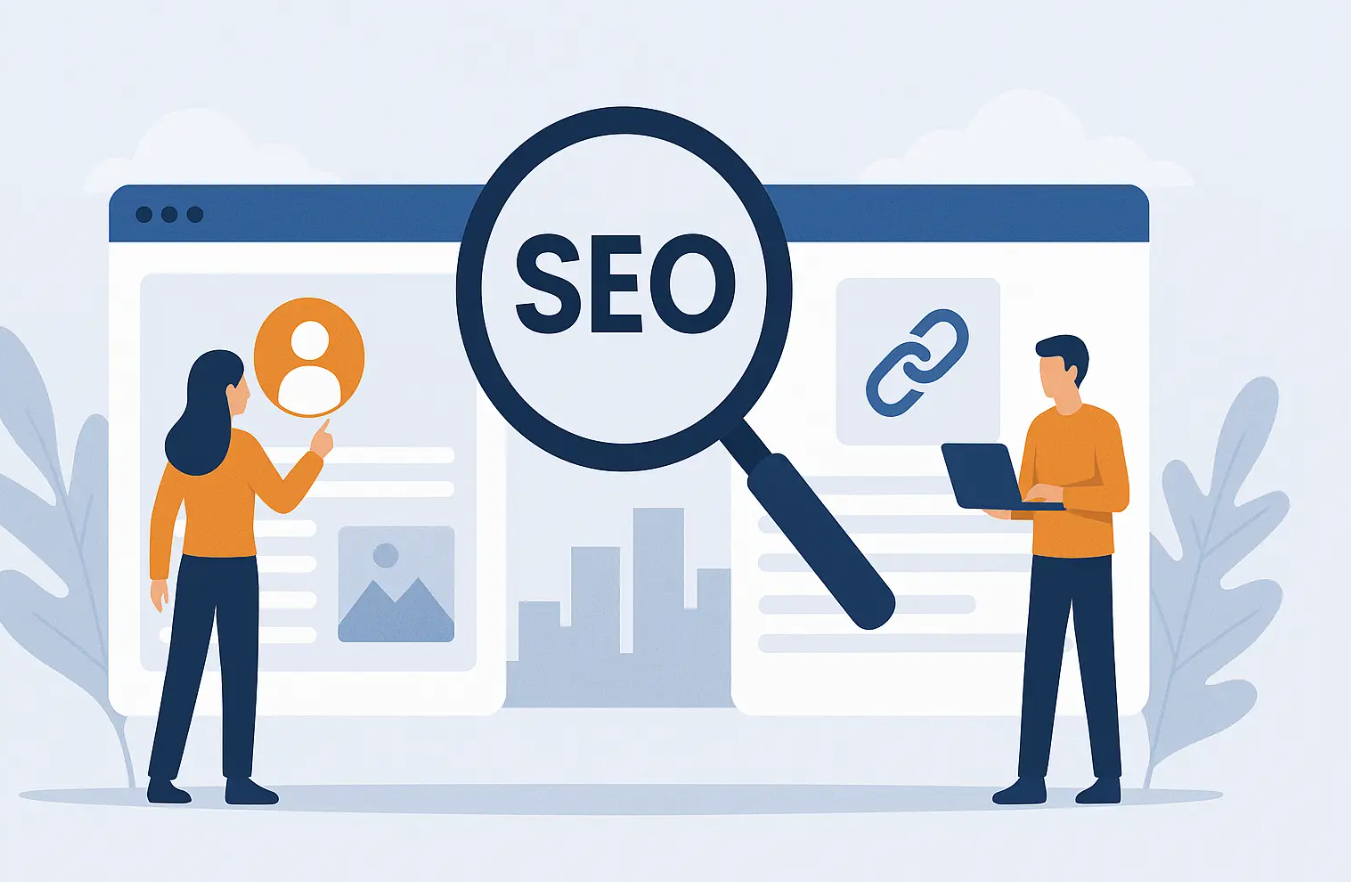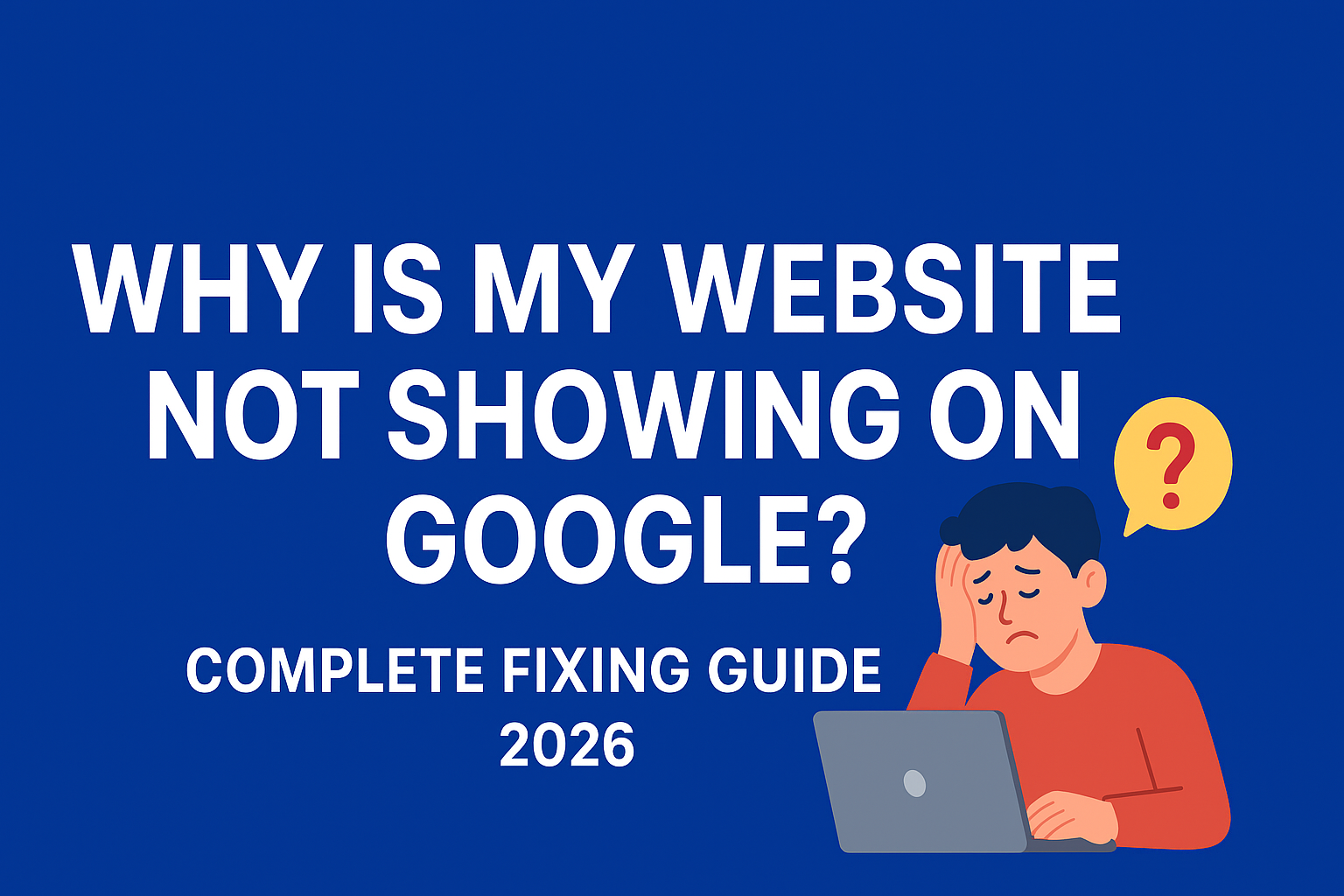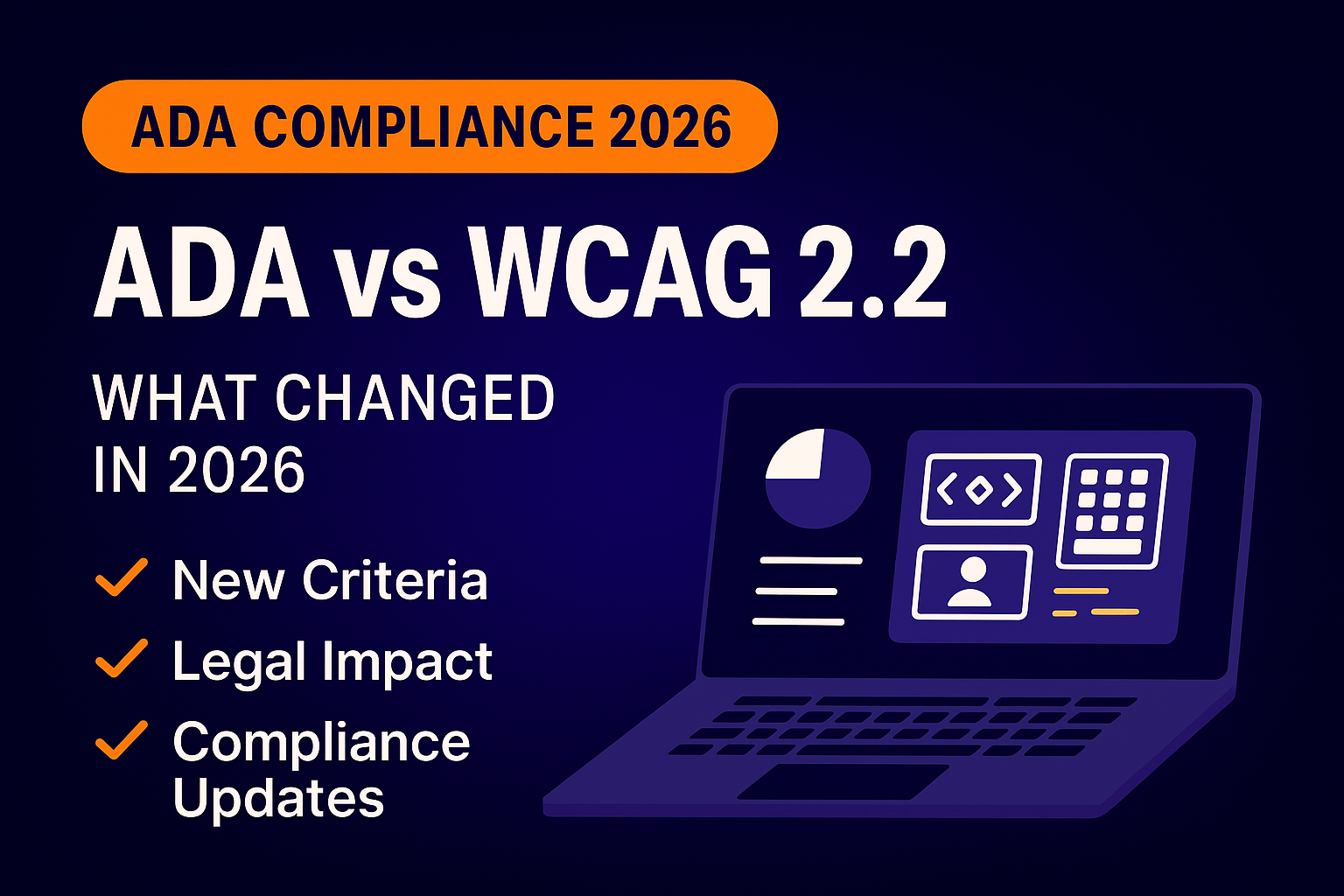Let’s be honest—SEO can feel overwhelming for beginners. Understanding the difference between on-page vs off-page SEO is the first step toward building a strategy that actually works.. Once you understand the difference between on-page and off-page SEO, you can start building a strategy that actually works.
At The Clay Media, we guide businesses through this maze every day. Think of this guide as your roadmap. No fluff, just clear, practical advice so you can start improving your website’s search visibility today.
What Exactly Is On-Page SEO?
On-page SEO refers to all the optimizations you can make directly on your website to help Google—and your visitors—understand what your site is about. It’s about making your pages as clear, useful, and friendly as possible.
That includes:
Keyword Optimization
Keywords are like signposts for search engines. They tell Google what your page is about. Instead of stuffing them unnaturally, use them naturally in your headlines, content, and even image alt text.
Meta Titles and Descriptions
These snippets appear in search results and can drive users to click your link over others. A well-crafted meta description can significantly improve your click-through rate.
URL Structure
Simple, descriptive URLs are better than long, messy ones. For example:
👉 www.yoursite.com/seo-tips is far better than www.yoursite.com/page?id=123.
Internal Linking
Linking between your own pages helps users navigate and distributes authority. For example, if you’re reading this blog, you might also explore our SEO services.
Content Quality
Content remains the king of SEO. Google rewards fresh, helpful, and authoritative content that answers users’ questions clearly.
User Experience (UX)
Factors like fast load times, intuitive navigation, mobile responsiveness, and clear calls-to-action all impact your SEO. Google even evaluates UX signals through Core Web Vitals.
Think of on-page SEO as preparing your website to shine. You’re giving Google the right signals to rank your site—and giving visitors a reason to stick around.
What About Off-Page SEO?
Off-page SEO is everything that happens outside your website that signals authority and trust to Google. While you have less direct control, off-page SEO is equally important.
Here’s what it includes:
Backlinks
Links from other reputable websites act like votes of confidence. The more high-quality backlinks you earn, the more authority your site gains in Google’s eyes.
Social Signals
Shares, likes, and mentions on social media may not directly boost rankings, but they increase exposure and can lead to more backlinks.
Guest Posting
Publishing content on other sites within your industry is a powerful way to build backlinks and establish expertise.
Online Reviews and Mentions
Positive reviews on platforms like Google Business Profile help with local SEO while increasing trustworthiness.
Brand Building
The stronger your brand visibility online, the more naturally backlinks and mentions come your way.
Think of off-page SEO as your website’s reputation in the wider digital world. Even if your on-page SEO is perfect, you need outside signals to prove authority.
On-Page vs. Off-Page SEO: What’s the Real Difference?
Here’s a simple breakdown:
| Factor | On-Page SEO | Off-Page SEO |
| Location | Your website | Other websites & platforms |
| Control | Full control | Limited control |
| Goal | Improve relevance & usability | Build authority & trust |
| Examples | Keywords, meta tags, UX, content | Backlinks, reviews, social mentions |
Both are essential. On-page SEO gives your site a strong foundation, while off-page SEO helps build credibility.
How On-Page and Off-Page SEO Work Together
A strong SEO strategy uses both in tandem:
- Start with on-page SEO – make your site easy to navigate, keyword-optimized, and user-friendly.
- Amplify with off-page SEO – share your content, build backlinks, and grow your brand’s authority.
- Measure and refine – track your analytics, test what works, and adjust.
This creates a cycle where strong content earns links, and those links fuel higher rankings and more traffic.
Common SEO Mistakes Beginners Make
Even experienced marketers sometimes slip. Here are common pitfalls to avoid:
- Keyword Stuffing: Overloading keywords reduces readability and rankings.
- Ignoring Mobile Optimization: Over half of traffic is mobile, and Google prioritizes mobile-friendly sites.
- Neglecting Backlinks: Without external validation, your site will struggle to rank.
- Inconsistent Messaging: Your brand tone should be clear and consistent across all platforms.
Avoiding these mistakes ensures your efforts build long-term SEO success.
Quick Tips for Beginners
- Start with a content audit to identify strengths and weaknesses.
- Use tools like Google Keyword Planner to research keywords.
- Optimize meta titles and descriptions for every page.
- Build partnerships for backlinks—guest blogs, industry collabs, and press mentions.
- Monitor metrics like organic traffic, bounce rates, and conversions.
The Takeaway
On-page and off-page SEO aren’t competing strategies—they’re partners. On-page SEO ensures your website is optimized and user-friendly. Off-page SEO builds the trust signals Google looks for.
For beginners, start with the basics: optimize your core pages, publish high-quality content, and build relationships that naturally lead to backlinks. Over time, these steps compound into stronger rankings and more conversions.
At The Clay Media, we specialize in making SEO approachable and effective for businesses. We don’t just launch websites—we help them rank, perform, and convert.
Ready to grow your business online? Contact The Clay Media today and let’s build a strategy that gets your website seen, trusted, and clicked.
FAQs About On-Page vs. Off-Page SEO
1. What is the main difference between on-page and off-page SEO?
On-page SEO refers to optimizations you make directly on your website, such as keywords, meta tags, and content quality. Off-page SEO refers to external signals like backlinks, reviews, and social mentions.
2. How long does it take to see results from SEO?
On-page SEO improvements can sometimes show results within weeks. Off-page strategies like link building usually take several months before impacting rankings.
3. Can I do SEO myself, or do I need an agency?
You can handle basics like keyword research and meta optimization yourself. But working with an experienced agency like The Clay Media accelerates results through advanced strategies and tools.
4. What should beginners focus on first?
Focus on on-page SEO first: optimize your site speed, structure, and content. Once that’s solid, you can start building off-page authority through backlinks.
5. How do backlinks affect SEO?
Backlinks act as endorsements. High-quality backlinks from trusted websites signal to Google that your site is authoritative, which improves your search rankings.





